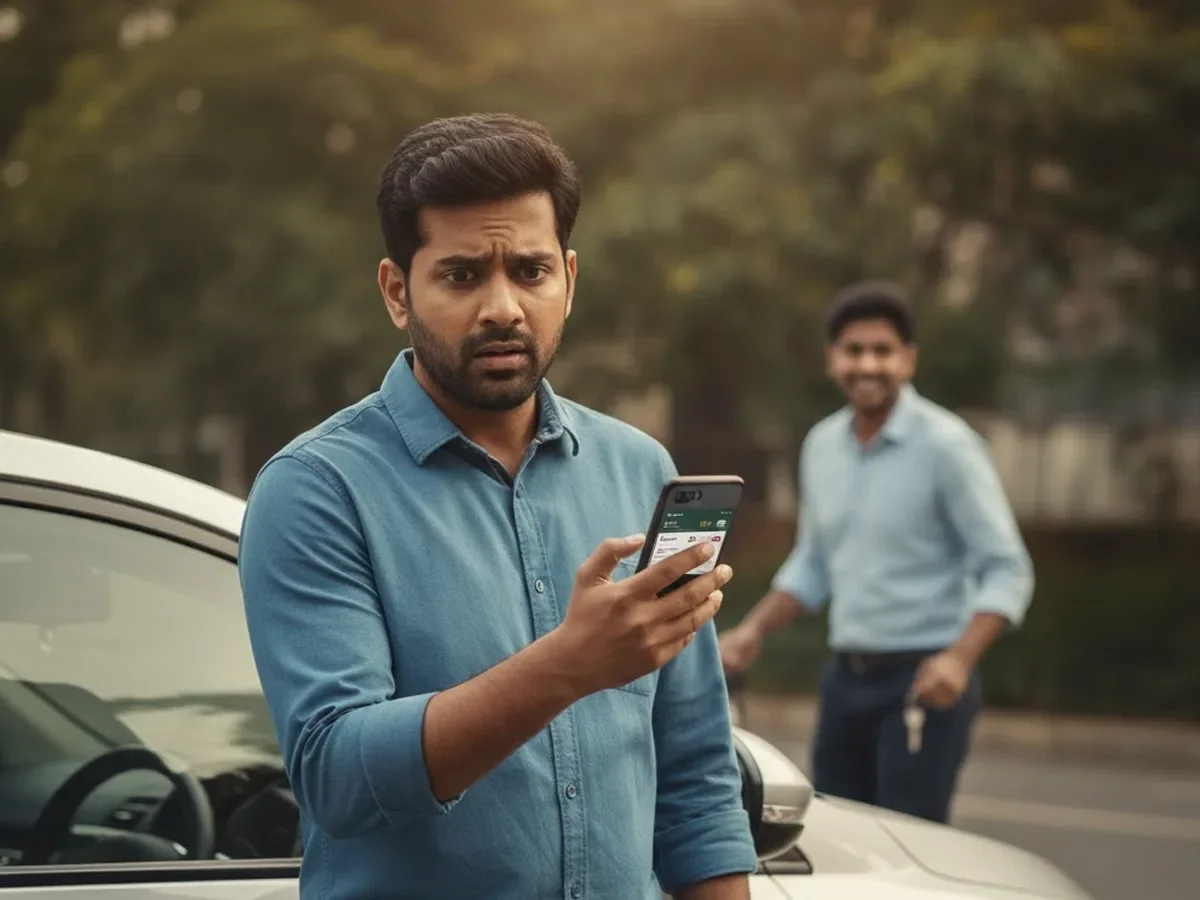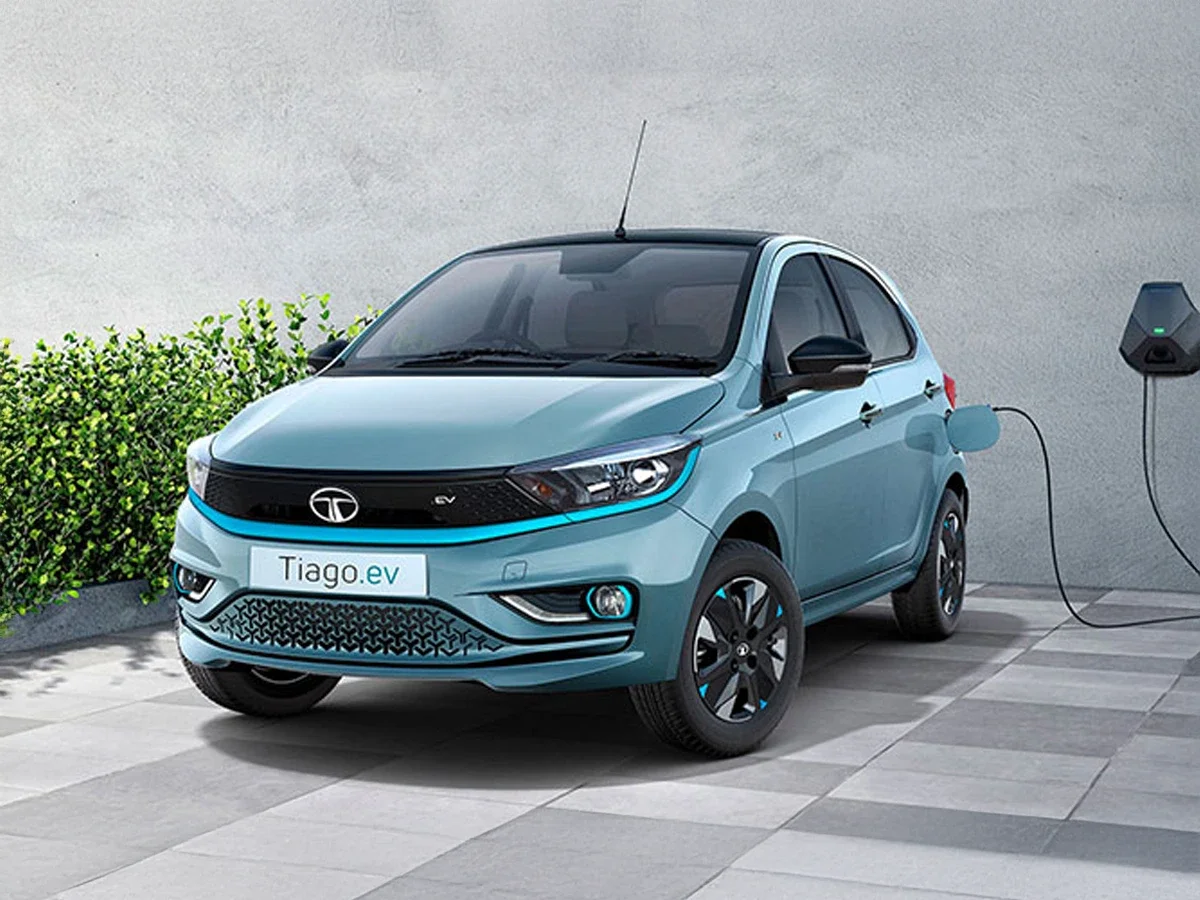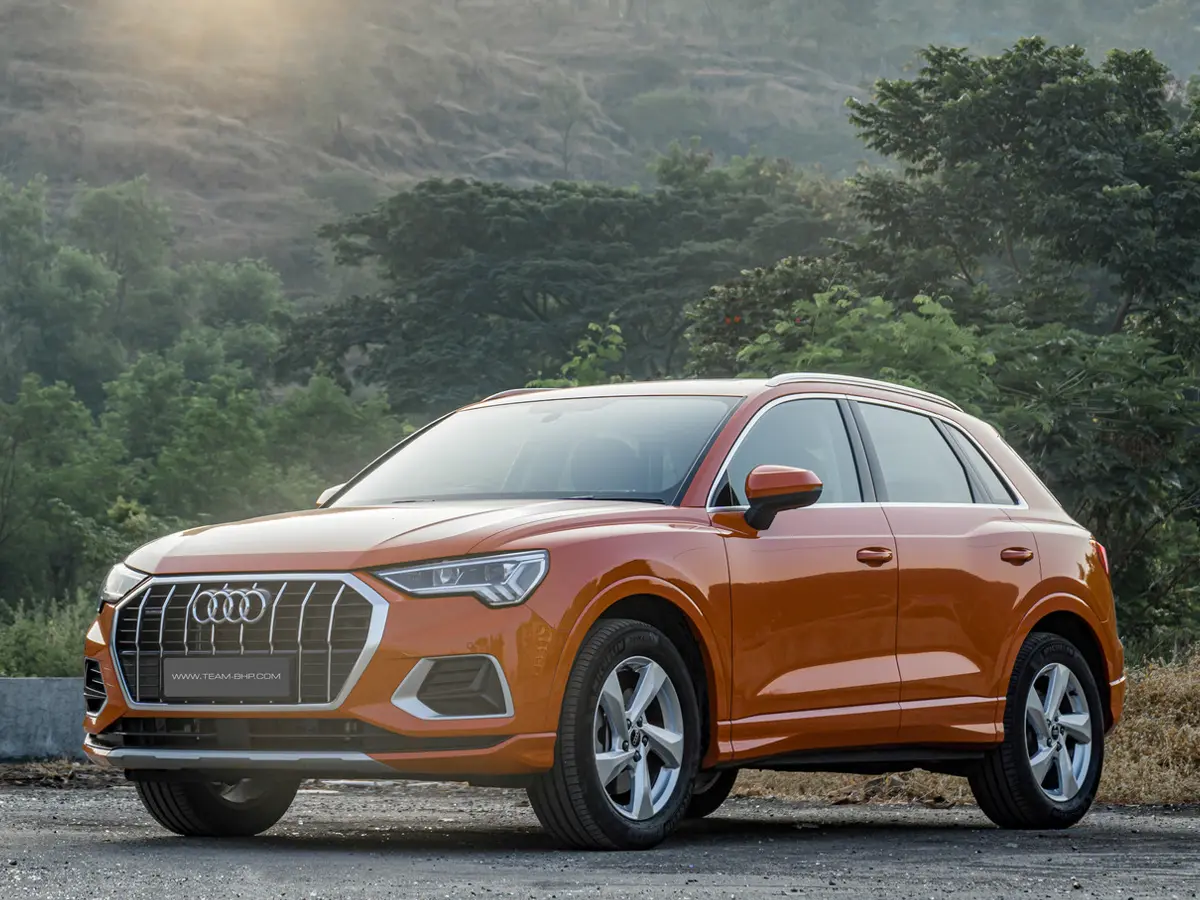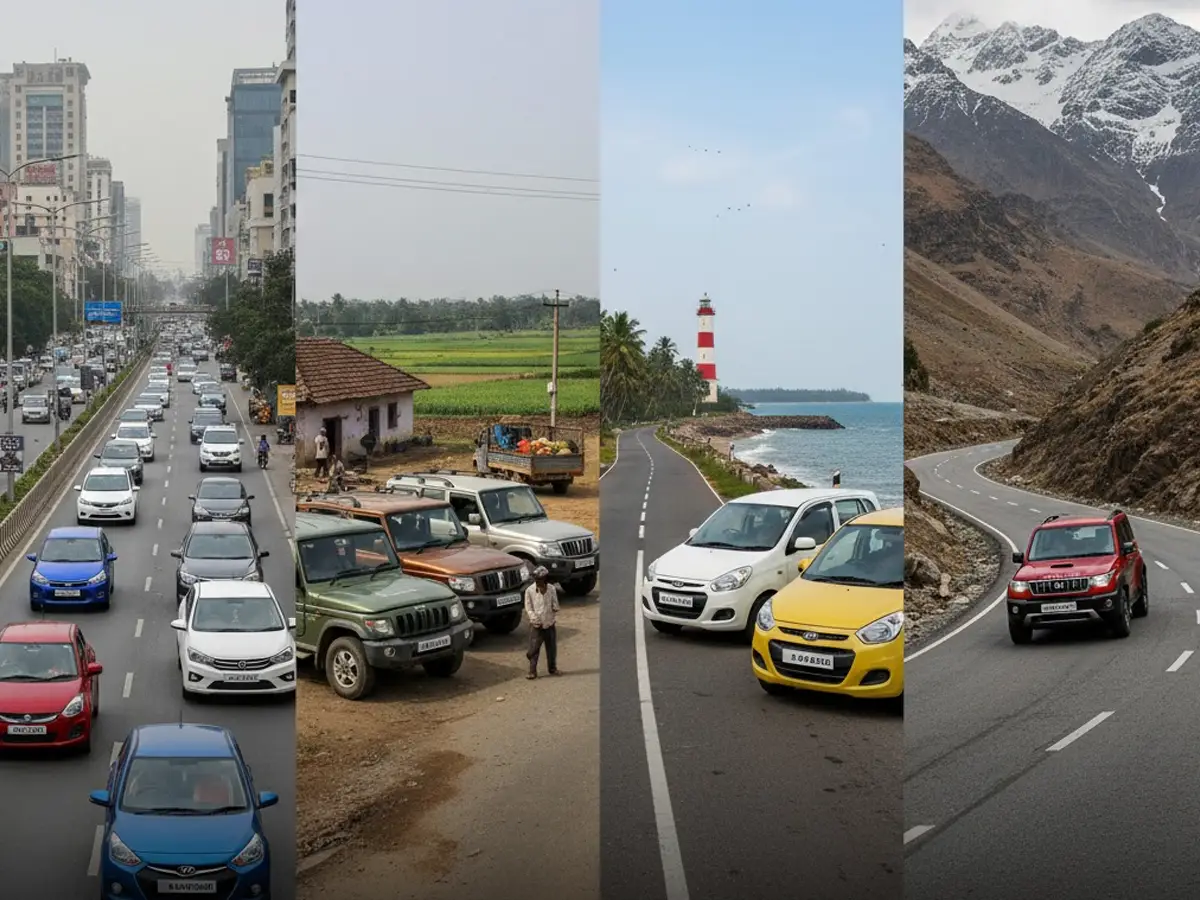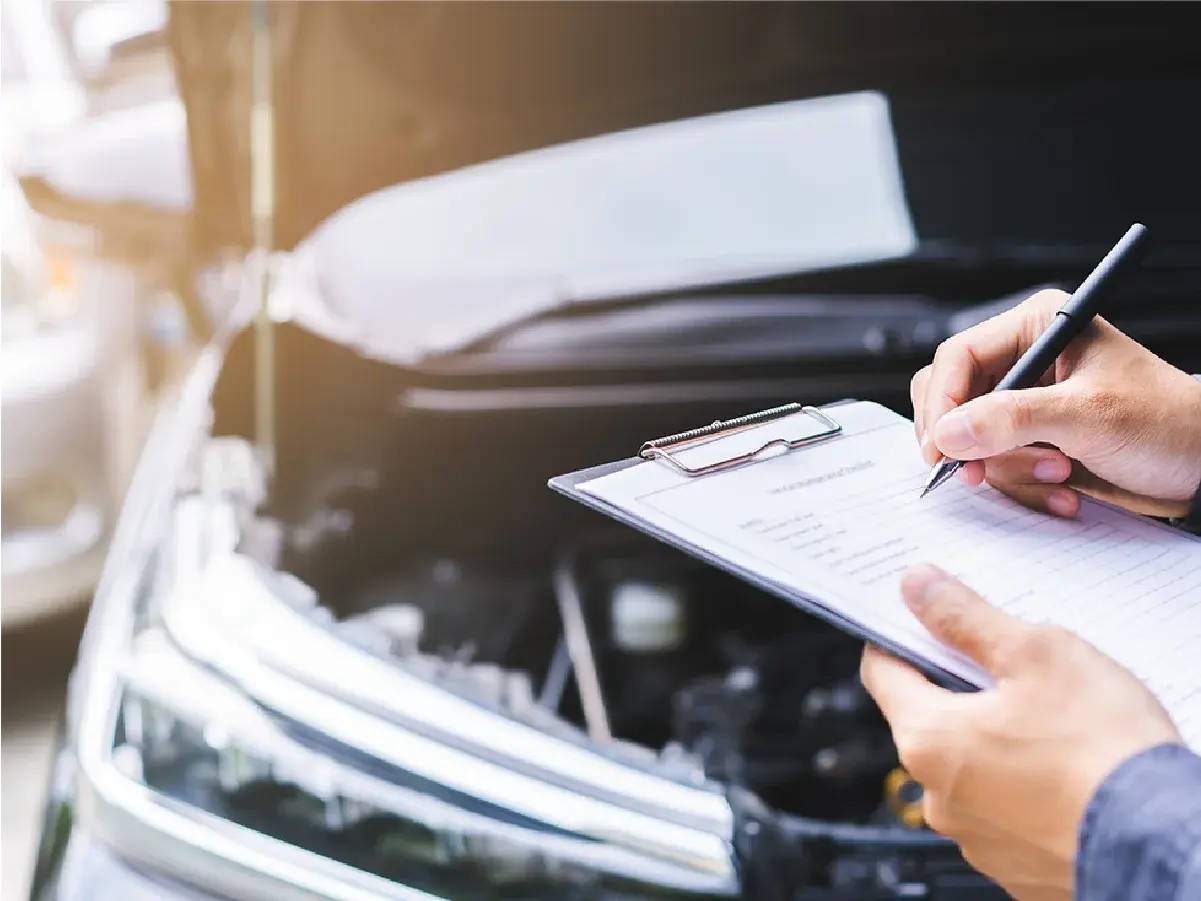

Everything you need to know about car inspections
- 1Understand when your car needs a professional car inspection
- 2Learn to inspect your car at home with simple tools and procedure
- 3Know all the costs, types and benefits of car inspections
Your car is manufactured with thousands of components that work together to ensure that the car runs as expected. All the components in the vehicle are subjected to regular wear and tear. If you run your car with worn-out components, it can lead to unexpected breakdowns or compromise on safety. Hence, it is crucial to get a car inspection performed by an experience mechanic at regular intervals.
We explain everything about car inspections, including those that can be performed at home, the need for professional inspection services, the costs, and preventive measures.
Understanding the Basics of Car Inspection
A car inspection is a detailed examination to ensure the vehicle meets all safety, performance, efficiency, and emission standards. Vehicle inspections aim to identify and rectify any issues that could compromise the safety of the occupants and other road users.
Vehicle inspections are of various types dedicated to different aspects including safety, emissions, pre-purchase, and general checkups.
- Safety Inspections: Safety inspections focus on the components responsible for the car’s safety, such as brakes, suspension, steering, lights, tyres and other advanced equipment like ABS, EBD, ESP, etc.
- Emissions Inspections: Emission inspections are done to obtain a Pollution Under Control Certificate (PUCC), a mandatory document that ensures the vehicle meets all environmental regulations.
- Pre-Purchase Inspections: Pre-purchase or pre-delivery inspections are performed before taking delivery of a new or used car.
- General Inspections: General car inspections are essential regularly to identify and fix any hidden issues with the vehicle, ensuring its safety and performance.
Components of a Comprehensive Car Inspection
A comprehensive car inspection involves checking components related to body panels, mechanical systems and other subsystems.
Exterior Inspection: The exterior inspection of the vehicle identifies areas with dents, scratches, chips, and signs of rusting or corrosion on the body.
Interior Inspection: The seats and upholstery inside the cabin are thoroughly inspected. A report is prepared indicating whether any repairs or replacements are required.
Powertrain Inspection: Powertrain inspection includes checking the engine, belts, hoses, transmission, and drive axles for faults. Optimum fluid levels, such as radiator coolant, wiper washer fluid, brake fluid, etc., are also inspected.
Steering and Suspension Inspection: Steering and suspension systems are critical components of a car, and they should be properly inspected for signs of wear, tear, or damage.
Wheels and Brakes Inspection: Wheels and brakes inspection ensures that the wheels, tyres, and brakes are in good health to provide a smooth and safe drive.
Car AC inspection: Car Air-conditioner inspection involves complete checking of AC components, including compressor, compressor clutch, refrigerant lines, evaporator, cooling coil, blower and carbon air filter.
Electrical Inspection: The electrical system comprises the battery, alternator, headlights, tail lights, turn indicators, infotainment system, cockpit, warning lights, etc. Proper electrical system inspection ensures the smooth operation of all electrical components.
Common Signs Your Car Needs Inspection
Many signs indicate your car needs an inspection to uncover any hidden issues. These signs include strange noises, vibrations, warning lights on the dashboard, decreased performance, uneven tyre wear, poor suspension performance, or reduced fuel efficiency.
If any of these signs are noticed, immediately check your car for the source of the issue. Many times, the problems can be observed without professional help. Still, it is recommended that an expert mechanic help identify the problems and rectify them as a higher priority.
Ignoring the signs of early problems in the vehicle can lead to costly repairs, unexpected breakdowns, compromise on safety, lower AC cooling performance, and traffic challans for failing to meet regulatory standards, among other consequences.
Importance of Professional Car Inspections
Inspecting the car yourself could be helpful for several minor issues, such as lower tyre pressure, strange noises, pipes, hoses, fluid levels, etc. However, it is always recommended that a local mechanic or specialised car workshop perform the necessary car inspections. A professional mechanic can spot issues that may not be apparent during a self-inspection.
Scheduling a professional general inspection is easy; just reach out to the professional car garage and book an appointment for the inspection service you wish to proceed with.
Signs that your car needs a professional inspection:
- There are unusual noises
- Vehicle performance is noticeably reduced
- Problem with steering or suspension systems
- The car AC is not cooling
- A sudden drop in fluid levels
- A dashboard warning light comes up
How to do a Self-Car Inspection at Home?
A self-inspection requires some essential tools like a tyre pressure gauge, a flashlight, a pair of gloves, etc. Park the vehicle on a flat surface, pull the hand brake, and let the engine cool down. Ensure that there is adequate light and ventilation in the area before proceeding.
- Start with the car's exterior inspection. Check the vehicle’s exterior for dents, scratches, chips, or signs of rusting or corrosion on the body
- Next, thoroughly examine the dashboard, seats, upholstery, and floor mats in the cabin. Take notes of any areas that might require repairs or replacements
- Once the exterior and interior inspections are completed, move to the powertrain. The powertrain comprises a car's engine, transmission, and drive axles. Inspect all the components in the engine bay, such as the engine oil, air filter, coolant level, brake fluid, washer fluid, clutch fluid, pipes, hoses, radiator, and other components. Recall if any unexpected noise or harshness was noticed earlier
- Inspect the steering and suspension systems with a flashlight. Look out for any signs of wear and tear in tie rods, control arms, ball joints, rubber bushings, etc
- Check the tyre pressure with a handy pressure gauge. Observe the tyre treads with the tread depth indicator on the tyres themselves and inspect the tread for uneven wear
- Self-inspect the car AC by observing its performance while driving. Inspect the compressor, wiring and refrigerant lines. The cabin air filter is located behind the glove box in most cars available in India. Unhinge the glove box inside the cabin and check the air filter. Clean it by lightly tipping it on the floor or get it replaced by a professional
- The electrical system should be inspected separately. It includes the battery, alternator, wiring harness, distributor, headlights, tail lights, turn indicators, infotainment system, and dashboard warning lights. Inspect them to ensure all components are functioning smoothly
- After completing the self-inspection, note down all the details. If you identify any problems, be ready to consult a professional mechanic for a thorough check-up
General Cost of Car Inspections
Professional car inspections are generally affordable. However, the cost of inspections depends on the car’s model and the type of service chosen. The price varies based on the scope of work and accuracy.
Here are the differences between a professional inspection and a self-car inspection:
| Inspection Type | Professional Inspection | Self Inspection |
| Cost | Depends on Car Model. Prices start from INR 599 | Minimal Cost |
| Accuracy | The inspection accuracy is high | The inspection accuracy depends on the experience of the owner |
| Time Needed | The time required is 1 to 2 hours | The time required varies on the tool available and the car owner's experience |
| Tools Required | Professional tools and equipment required | Basic tools required |
Car Inspection for Legal Requirements
The inspection mandated by the Government of India is the Pollution Under Control Certificate (PUCC). A PUCC is granted after a vehicle's emission inspection is successfully completed. It is recommended to get an emission inspection performed by a professional for a high degree of accuracy.
Apart from preventing challans, a PUCC is also evidence of the good condition of various sensors and components such as O2 sensor, mass flow sensor, ERG system, catalytic converter, etc.
Conclusion
Regular car inspections are essential for a vehicle’s optimum performance, efficiency, safety and legal compliance. If the car is showing signs of issues, it is imperative to get your vehicle inspected by a professional at a reputed workshop. Never overlook the importance of car inspections as they are an investment for a vehicle’s longevity and reliability.
Frequently Asked Questions
Expand all